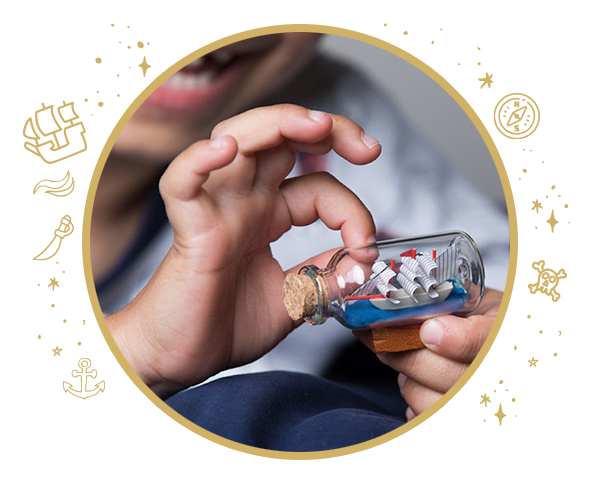What is it that keeps you going when life gets challenging? Resilience is a term that has defined the underlying human character for generations. It helps to explain why some seem to cope better than others, and why there are people that continue to grow, no matter what gets thrown at them.
For our kids, fostering resilience is a key gift we can give. It’s not just for the more extreme situations (like pandemics or losing a loved one), but involves sustaining them through the general ups and downs of life.
Mental health, including resilience, are common concerns for parents, so here’s what we’ve found on ways you can help your kids.
Get our free download: 9 Tips for Building Resilience in Kids
Why resilience is vital for kids (and all humans!)
As parents, we want to protect our kids. We teach safety, we attempt to shelter them from bad news and we often try to extend that protection to all sorts of life’s negatives. It’s a natural response, but research shows that wanting to protect kids from all things that cause them discomfort or disappointment can actually impede their development of resilience. To put it plainly, smooth sailing at all times just isn’t how the world works!
Psychology Today defines resilience as the following:
“Resilience is that ineffable quality that allows some people to be knocked down by life and come back stronger than ever. Rather than letting failure overcome them and drain their resolve, they find a way to rise from the ashes.”
Resilience is the ability to bounce back in the face of adversity. For kids, that could involve anything from dealing with mean words from their peers to overcoming small disappointments. As they grow, it helps them to deal with the relative “bigger” pressures associated with growing up.

Image by Ben White
Resilience is also closely associated with other traits that are important for building strong, successful people. For example, grit—the perseverance and sustained effort towards goals. Endurance and fortitude are other related traits.
The American Psychological Association (APA) describes some markers for resilience, such as:
- The capacity to make realistic plans and take steps to carry them out.
- A positive view of yourself and confidence in your strengths and abilities.
- Communication and problem-solving skills.
- The capacity to manage strong feelings and impulses.
The hope of parents is that if we can help to nurture resilience in kids, they will carry those markers with them into adulthood.
Strategies to help kids develop resilience
The big question is, how do we help our kids to develop resilience? The good news is that researchers have identified the single most-common factor among resilient kids—having at least one stable and committed relationship with a supportive adult. If you’re here, that’s you!
Harvard researchers say: “These relationships provide the personalized responsiveness, scaffolding, and protection that buffer children from developmental disruption. They also build key capacities—such as the ability to plan, monitor, and regulate behavior—that enable children to respond adaptively to adversity and thrive.”
Some children are biologically predisposed to being more resilient, but the environment they grow up in plays a huge role in the equation. Resilience is a learned behavior, helping kids to control their response to stress or adversity.
Several researchers have found that parenting style plays a role in the development of resilience. Specifically, parents who are warm and supportive, but set appropriately demanding expectations help develop child resiliency. Respectful parenting, where children are encouraged to be self-directed, also helps to build resilience.
Here are strategies that help to develop resilience in kids:
Celebrate who they are
Kids who have a strong sense of self-efficacy and are encouraged to “be themselves” tend to be more resilient. The opposite of this would be pushing them in a direction they don’t want to go, like forcing them into situations or extra-curricular activities that just aren’t their cup of tea.
Meaningful participation in activities they really care about can help instill a strong internal locus of control, believing that events in their life are a result of their own actions. This is directly related to resilience.

Image courtesy of The National Cancer Institute
Have firm, but loving limits
Boundaries are an important part of developing resilience because we naturally encounter all sorts of boundaries in life. Kids need to clearly understand what they are and be told what it looks like and sounds like to respect them.
Provide opportunities to “fail forward”
As parents, it’s natural to want to protect kids from everything, including failure. However, it’s important that they do get the opportunity to “fail forward.” What does this mean? It means they are allowed the opportunity to learn from mistakes and build their skills and resilience from doing so. (In a safe way, of course—you still definitely want to intervene over any unsafe behavior!).
Talking to kids about examples of where you’ve failed and what you learned from the experiences helps to normalize the idea that “failure” isn’t the end. You can explain to kids that mistakes are opportunities for building their skills and figuring out ways to better solve the problem next time.
Help teach them to take responsibility
Responsibility helps kids to develop their self-esteem and self-efficacy. They need opportunities to develop mastery and competence, especially through tasks and experiences that will enhance their confidence.
As an example, consider learning how to cook by following a recipe. If you’re a kid new to reading and math, it can seem like an overwhelming task, but when broken down into steps, it seems much more achievable. New readers could be encouraged to read the words in the recipe that they know while you help them with context and instructions.
It’s a good example of a task for which responsibility can be increased as kids grow and become more competent. Think about that proud feeling when they’ve been able to cook something that feeds the family!
Extra tips for helping kids build resilience [Free Download]
Model resilience
Unsurprisingly, child psychologists have found that parental modeling is one of the most effective ways to help kids develop behaviors of any kind. Kids take their cue from you—if they see a strong, competent role model, those are the behaviors they take on.
This might be easier said than done. We all have moments when circumstances seem overwhelming, and let’s be honest, we’re not all on our best behavior all the time. It’s okay to have those down moments, the important part is modeling how we deal with them in a resilient way. “I was upset about that, but the only way to move forward is with a good plan to deal with it.”
Importantly, when kids are aware that you, too, struggle with things sometimes, they have a reference point for their feelings when it happens to them. They can reflect on how they’ve seen you cope and they can understand that it’s perfectly normal for them to feel that way.
Another important part of modeling is showing kids how to deal with stress in healthy ways. You can talk about it with them frankly: “When I feel stressed, I like to go for a walk—it helps me to think of ideas and feel better about it.” Talk to them about different ideas—keeping a journal, doing art, listening to music—to help them find healthy ways that suit them for coping with stress.
Conclusion
Resilience is very much a learned behavior that can be nurtured in our kids. It’s an important gift that will help to see them through the inevitable rough patches of life.
As a parent or significant adult in their lives, you’re in the best position to influence the development of resilience. You don’t have to be the “perfect parent” at all times, but rather that you demonstrate healthy coping mechanisms and resilience that they can model.
We can all expect to go through challenges in life, but resilience is the key to bouncing back. With these strategies, you can help your kids develop the skills to tackle any adversity.
Get our free download: 9 Tips for Building Resilience in Kids



















